Find Your Own Inspiration
We can all find inspiration in the lives of people with disabilities who have impacted the world around them.
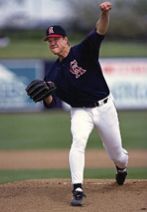 |
Jim Abbott | Athlete |
| Born with only one hand, Jim Abbott has been a Major League Baseball pitcher for the California Angels, the New York Yankees, the Chicago White Sox, and the Milwaukee Brewers.
“I learned that you can learn to do things differently, but do them just as well. . . I’ve learned that we have an obligation to the abilities we do have, not the disability.” |
|
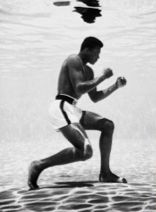 |
Muhammad Ali | Athlete |
| A Golden Gloves champion at age 17, an Olympic gold medalist at age 18, and an undefeated heavyweight champion at age 22, Ali’s greatest fight was not in the ring. Ironically, after beating the his toughest opponents, it was Parkinson’s disease that would prove to be his greatest foe. Ali’s tireless work raising money to fight this debilitating disease has inspired thousands and endeared him to a new generation of admirers around the world."I hated every minute of training but I said, 'Don't quit. Suffer now and live the rest of your life as a champion.'" |
|
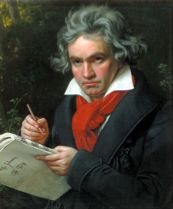 |
Ludwig van Beethoven | Musician, Composer |
| Beethoven is widely regarded as one of history’s supreme composers, and he produced notable works even after losing his hearing, including his Ninth Symphony (Ode to Joy) and Piano Concerto No. 5 (the “Emperor”). He was one of the greatest figures in the transitional period between the Classical and Romantic eras in music.
"Every day is lost in which we do not learn something useful. Man has no nobler or more valuable possession than time; therefore never put off till tomorrow what you can do today." |
|
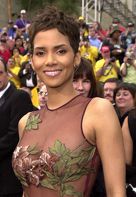 |
Halle Berry | Actor |
| Berry acquired unilateral hearing loss (80% hearing loss in her left ear) after being severely beaten by a former boyfriend. “Luckily, in recent years, I have been smart enough to hit the door when violence even becomes a possibility. That is something I will not tolerate.”
In 1989, unaware that she even had the condition, the Oscar-winning actress was diagnosed with diabetes. She became the first spokesperson for Diabetes Aware, a public service campaign of the Entertainment Industry Foundation. |
|
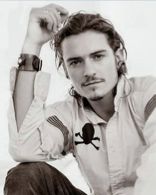 |
Orlando Bloom | Actor |
| “I suppose my dyslexia made me feel like I wasn’t smart enough. Some people are just brain boxes, but then in everyday [situations] they’re clueless. I was street-smart; I was always bright, but I found it harder in the classroom.Once I [passed] my exams, I felt better because I knew that I could do it if I applied myself.” | |
 |
Foxy Brown | Rapper |
| In 2005, Foxy Brown revealed that she was slowly losing her hearing after being diagnosed with a rare condition that only affects 1 in 10,000. She suffered severe sensorineural hearing loss in both ears.
“I started breaking down in tears and screaming and I couldn’t even hear myself scream,” she told People magazine. “I questioned God: ‘Why me?’” She continued to record by having someone tap out the beat on her shoulder. After surgery in 2006, Brown began to recover her hearing. |
|
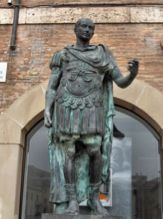 |
Julius Caesar | Politician |
| Julius Caesar, a brilliant general and formidable politician, had seizures in the last two years of his life (possibly caused by a brain tumor).
"Experience is the teacher of all things." |
|
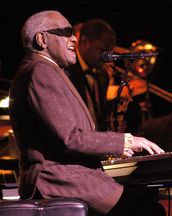 Photo: Victor Diaz Lamich |
Ray Charles | Musician |
| Ray Charles taught himself piano at age three. When he lost his sight at the age of seven, he entered the St. Augustine School for the Deaf and Blind, where he learned classical piano and how to compose scores in Braille. After being orphaned at sixteen, Charles left school and joined a country-western band. Over the next ten years, he criss-crossed the South, where he absorbed different musical influences before settling on a sound of his own.
"There are many spokes on the wheel of life. First, we're here to explore new possibilities." |
|
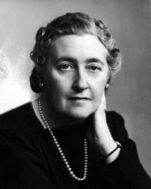 |
Agatha Christie | Author |
| Agatha Christie is the world’s best-known mystery writer and all-time best selling author of any genre other than William Shakespeare.
“I, myself, was always recognized. . . as the ‘slow one’ in the family. It was quite true, and I knew it and accepted it. Writing and spelling were always terribly difficult for me. My letters were without originality. I was . . . an extraordinarily bad speller and have remained so until this day.” |
|
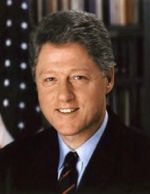 |
Bill Clinton | Politician |
| William Jefferson Clinton was the 42nd President of the United States, and the third-youngest president, behind Theodore Roosevelt and John F. Kennedy. In his second term, Clinton realized that he had difficulty with high-frequency sounds. He managed his hearing loss through the use of bilateral hearing aids.
“More than ever before, America’s greatness depends on the ability of its citizens to make the most of their lives. Americans with disabilities are an enormous, often untapped, reservoir of that potential.” |
|
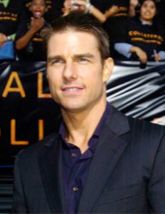 |
Tom Cruise | Actor |
| During the making of Top Gun, Cruise realized that he could never learn to fly a plane. He decided to overcome his dyslexia through a program that helped him take a step-by-step approach.
“I was a functional illiterate. I loved learning, I wanted to learn, but I knew I had failed in the system. Like a lot of people, though, I had figured out how to get through it.” |
|
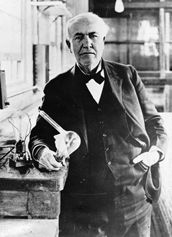 |
Thomas Edison | Inventor |
| Edison began to lose his hearing at age 15, perhaps a result of contracting scarlet fever. As an adult, he used telegraphy codes to communicate. When he went to see a play at the theater his wife tapped Morse Code on his leg.
“Deafness probably drove me to reading,” he said later in life. In 1877, Edison patented the first phonograph, and followed that with the development of the incandescent light bulb, after trying 10,000 times. He developed the system that could deliver electricity at reasonable cost throughout a city, and created the first silent film. In all, Edison obtained 1,093 patents. |
|
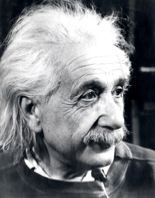 |
Albert Einstein | Physicist |
| Einstein attended school in Germany in the late 1800s. He was not very successful in his classes. He did poorly in history, geography, and languages, although he became skilled on the violin. Despite his struggles with the subjects, Einstein showed an interest in mathematics and science. He went on to study physics and mathematics for four years. He is best known for the Theory of Relativity and the mass-energy relation of E=mc².
“Do not worry about your difficulties in mathematics; I can assure you that mine are still greater. |
|
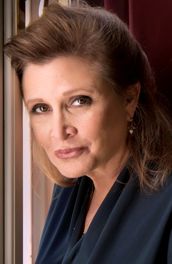 |
Carrie Fisher | Actor/Author |
| Carrie Fisher, the child of two Hollywood stars (Debbie Reynolds and Eddie Fisher) was diagnosed as bipolar in her early teens. Around the time she starred in the first Star Wars film in the 1970s, Fisher began using cocaine, which eventually led to an addiction. She had a serious alcohol problem by 1980, and in 1985 suffered a drug overdose which resulted in her entering rehabilitation. From this experience came her first best-seller, Postcards From the Edge.
“I figured, if people were going to say it about me, then I was going to say it first and I was going to say it better.” |
|
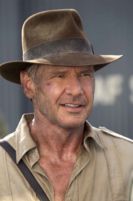 |
Harrison Ford | Actor |
| Ford began to show symptoms of clinical depression while in college. He’d sleep for days on end, finding it more and more difficult to raise himself. He recalls one day waking after a 3-day nap and deciding to attend a class. Everything moved in slow motion. He got to the class and, unable to turn the handle of the classroom door he turned around and went back to bed.
“The kindest word to describe my performance,” he said later, “was ‘sloth.’ Work went undone, classes were ignored." In his senior year at college he decided to try acting. |
|
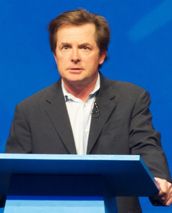 |
Michael J. Fox | Actor |
| Michael J. Fox is an actor, producer, and author. In 1991, he was diagnosed with young-onset Parkinson’s disease. Upon disclosing his condition in 1998, he shifted his focus and committed himself to a campaign for increased Parkinson’s research. The Michael J. Fox Foundation for Parkinson’s Research, which he launched in year 2000, raises awareness about Parkinson’s disease. His foundation became the leading fundraiser in the U.S., putting $140 million into research over eight years.
"The one choice I don’t have is whether or not I have [Parkinson’s]. But beyond that my choices are infinite.” |
|
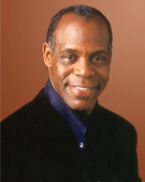 |
Danny Glover | Actor |
| Danny Glover is probably best known as the actor who played Roger Murtaugh opposite Mel Gibson in the Lethal Weapon films. Most people don’t know that he was diagnosed with epilepsy at the age of 15. For Glover, who had also been diagnosed with dyslexia in elementary school, respect was hard to come by.
“I was a decent athlete, but once I was diagnosed with epilepsy I could no longer play sports … I worked little jobs when I was in high school . . . in some sense, I was building a little place for myself. . . I felt that I could accomplish something. Despite the fact that I had epilepsy, I felt that I could win — that I was winning on some level.” |
|
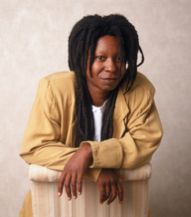 |
Whoopi Goldberg | Comedian/Actor |
| Whoopi Goldberg is an American comedian, actor, singer-songwriter, political activist, and talk show host. Goldberg made her film debut in The Color Purple.
“I knew I wasn’t stupid, and I knew I wasn’t dumb. My mother told me that. Everybody told me I wasn’t stupid or dumb. If you read to me, I could tell you everything that you read. They didn’t know what it was.” |
|
 |
Bethany Hamilton | Athlete |
| Hamilton’s lifelong dream of becoming a professional surfer was interrupted in 2003 when she was attacked by a 14-foot tiger shark while surfing. The attack left Bethany with a severed arm but did not destroy her eagerness and courage to continue to pursue her dream.
“I focused on the things that were really important to me. . .” |
|
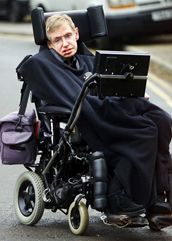 |
Stephen Hawking | Physicist |
| Considered one of the world’s leading theoretical physicists, Hawking is the Lucasian Professor of mathematics at the University of Cambridge, a post once held by Sir Isaac Newton.
“I am quite often asked: How do you feel about having ALS? The answer is, not a lot. I try to lead as normal a life as possible, and not think about my condition, or regret the things it prevents me from doing, which are not that many.” |
|
 |
Salma Hayek | Actor |
| After the release of the movie Frida, Hayek was asked by a London journalist, “What was the toughest part of your performance?”
Hayek answered, “There was one day when I could not say the line right. I’m dyslexic and I was tired. That was the scene we had the most trouble with.” |
|
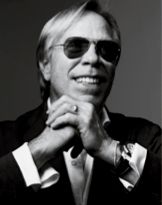 |
Tommy Hilfiger | Fashion Designer |
| “I performed poorly at school, when I attended, that is, and was perceived as stupid because of my dyslexia. I still have trouble reading. I have to concentrate very hard at going left to right, otherwise my eye just wanders to the bottom of the page.”
In 2006, Hilfiger sold his company for $1.6 billion. He believes has an actual advantage over other designers because he thinks differently. |
|
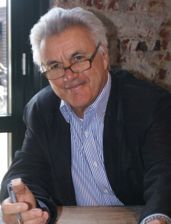 |
John Irving | Author |
| Irving was labeled as "stupid" and "lazy" by teachers growing up. When he learned he was struggling because of dyslexia, he payed twice as much attention to his reading and writing.
“I simply accepted the conventional wisdom of the day—I was a struggling student; therefore, I was stupid. . . It wasn’t until my younger son was diagnosed as slightly dyslexic that I realized how I had been given the shaft. [Dyslexia] has become an advantage. In writing a novel, it doesn’t hurt anybody to have to go slowly. . . One reason I have confidence in writing the kind of novels I write is that I have confidence in my stamina to go over something again and again.” |
|
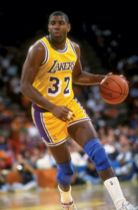 |
Magic Johnson | Athlete |
| On November 7, 1991, two months after getting married and still very much at the top of his game, Earvin "Magic" Johnson announced his positive test for HIV and immediate retirement from basketball. Johnson was one of the first celebrities to make such an announcement and still remains the most well-known person to publicly disclose the disease. Often regarded as the greatest point guard of all time, Johnson played 13 seasons for the Lakers and was honored as one of the 50 Greatest Players in NBA History in 1996 and selected to the NBA 75th Anniversary Team in 2021.
“Somebody will find out that they have HIV today. Nobody is immune. No kid. No grown up. Black, White, Latino, Asian. Nobody is immune from HIV and AIDS.” Since his retirement, Johnson has been an advocate for HIV/AIDS prevention and safe sex, as well as an entrepreneur, philanthropist, broadcaster and motivational speaker. |
|
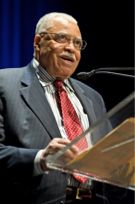 |
James Earl Jones | Actor |
| James Earl Jones — the voice of Darth Vader in Star Wars, Mufasa in The Lion King, and the voice of CNN — has the most in-demand voice in Hollywood. Jones has won three Tony Awards (out of five nominations), two Primetime Emmy Awards and a Grammy Award. People who know that he once had difficulty speaking think of him as a 'former' stutterer, although Jones still stutters when speaking spontaneously. As an actor, he has developed situational fluency when playing a role.
“Stuttering is painful. In Sunday school, I’d try to read my lessons and the children behind me were falling on the floor with laughter. Well, I knew I was funny. I still know why it is funny. . . [You] make people nervous. . . I’ve learned that sometimes the synapses in your brain trip up, like stumbling on a sidewalk.” |
|
 |
Keira Knightley | Actor |
| “I remember going in for an audition when I was 8, and it was the most excruciating experience because I couldn’t read my lines. My desire to act was my driving force. I got really good help from some amazing teachers and my mother and father worked tirelessly with me, so by the time I was 11, I had kind of overcome the dyslexia and now it’s not really a problem. I don’t notice it anymore.”
Known for her work in both independent films and blockbusters, in 2018 Knightley was appointed an OBE at Buckingham Palace for services to drama and charity. |
|
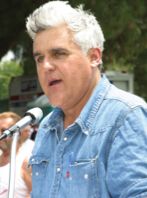 |
Jay Leno | Talk Show Host |
| Leno is mildly dyslexic and got mainly C's and D' s in school, but that still did not deter him from applying to and eventually graduating from the esteemed Emerson college in Boston.
“The admissions officer said I wasn’t what they wanted. But I sat outside his office 12 hours a day until he said he’d let me in if I went to summer school.” Since leaving The Tonight Show in spring 2014, Leno has maintained an active schedule as a touring stand-up comedian, doing an average of 200 live performances a year in venues across the United States and Canada, and at charity events and USO tours. "You cannot be mad at somebody who makes you laugh... it's as simple as that." |
|
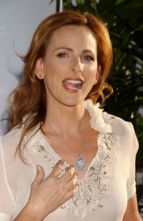 |
Marlee Matlin | Actor, Author, Activist |
| Matlin lost most of her hearing at the age of 18 months, following a bout of Roseola Infantum. She lost all hearing in her right ear and 80% of hearing in her left ear.
"The handicap of deafness is not in the ear; it is in the mind." “Often I’m talking to people through my speaker phone and after 10 minutes or so they say, ‘Wait a minute, Marlee, how can you hear me?’ They forget I have an interpreter there who is signing to me as they talk. So I say, ‘You know what? I can hear on Wednesdays.’” |
|
 |
Heather Mills | Model / Activist |
| In August 1993, Mills's life changed forever when she was involved in a road accident with a police motorcycle that resulted in crushed ribs, a punctured lung, and the loss of her left leg below the knee.
Already a champion for better refugee care in Slovenia, she launched a nationwide appeal for unwanted prostheses and then recruited inmates at Brixton prison to dismantle them for transporting abroad. As co-founder, patron and United Nations Goodwill Ambassador for Adopt-A-Minefield, Mills raised awareness about landmines and landmine survivors. From 2000 - 2006 her organization helped to raise $18.5 million, which was used to clear minefields from 21.5 million square meters, helped to fund landmine survivor projects, and has assisted more than 400,000 amputees. |
|
 |
Aimee Mullins | Athlete/Model |
| “Truthfully, the only real and consistent disability I’ve had to confront is the world ever thinking that I could be described by those definitions.”
Aimee Mullins is an American athlete, actress, and public speaker. She was born with a medical condition that resulted in the amputation of both of her lower legs. She is famous for being the first amputee to compete against able-bodied athletes in National Collegiate Athletic Association events, and competed in the Paralympics in 1996 in Atlanta. In 1999 she began modeling, and in 2002 she began an acting career. She speaks at conferences, and is well known for her TED Talks. "At some point in every person's life, you will need an assistive medical device - whether it's your glasses, your contacts, or . . . a hip replacement or a knee replacement or a pacemaker. The prosthetic generation is all around us." |
|
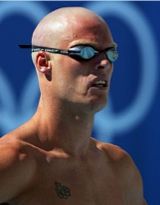 |
Terence Parkin | Athlete |
| The 25-year-old South African was born with a severe hearing disability and uses sign language to communicate with his coach. Parkin won the silver medal at the 2000 Summer Olympics in the 200 meter breaststroke and competed in the 2004 Summer Olympics.
“I am going to the Olympics to represent South Africa, but it’s so vitally important for me to go, to show that the deaf can do anything.” |
|
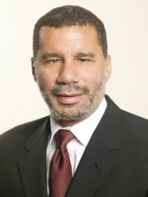 |
David Patterson | Politician |
| David Patterson (born May 20, 1954) was the 55th Governor of New York State. He was the first governor of New York of African American heritage and also the second legally blind in the U.S.
Gov. Mario M. Cuomo recalled playing basketball against Paterson in a charity game ten years ago. “I said: ‘What are you doing here? You’re supposed to be blind.’ He said, ‘I’m guarding you.’ Just what I wanted: a blind guy to guard me. The second time down the court, he stole the ball.” |
|
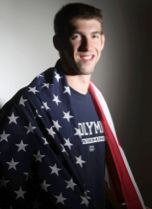 |
Michael Phelps | Olympian |
| Michael Fred Phelps has won 23 career Olympic gold medals, the most by any Olympian, and is often cited as the greatest swimmer and one of the greatest Olympians of all time. After being diagnosed with ADHD, Phelps developed the self-discipline and determination that has made him a legend and role model for children with learning disabilities. “I know it won’t be eight medals again. If you want to compare me to that, that’s your decision, not mine. I’m going out there to try to accomplish the things that I have in my mind and in my heart.” |
|
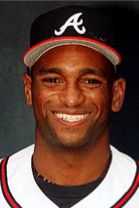 |
Curtis Pride | Athlete |
| Pride played baseball all through high school and college. He first signed with the New York Mets and has subsequently enjoyed a successful career in professional baseball playing and played with the following major league teams: The Detroit Tigers, Atlanta Braves, Boston Red Sox and the Montreal Expos.
While playing with the Atlanta Braves, Pride was the first African American with a disability to play in a World Series. He is the first deaf baseball player in almost 50 years. |
|
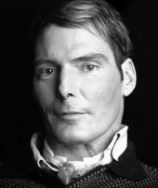 |
Christopher Reeve | Actor |
| American actor, director, producer and writer, Reeve is renowned for his film portrayal of Superman and Clark Kent in four films from 1978-1987. In 1995, Reeve was rendered a quadriplegic during an equestrian competition and was confined to a wheelchair for the remainder of his life. He became a spokesman for disabled people and a vocal supporter of stem cell research.
“I refuse to allow a disability to determine how I live my life. I don’t mean to be reckless, but setting a goal that seems a bit daunting actually is very helpful toward recovery.” |
|
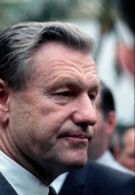 |
Nelson Rockefeller | Politician |
| Nelson Aldrich Rockefeller (July 8, 1908 – January 26, 1979) was a philanthropist, Governor of New York State, and the 41st Vice President of the United States (1974-1977), serving under President Gerald Ford.
“I was one of the ‘puzzle children’ myself – a dyslexic . . . And I still have a hard time reading today. Accept the fact that you have a problem. Refuse to feel sorry for yourself. You have a challenge; Never quit!” |
|
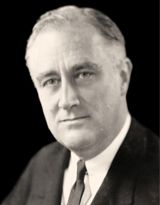 |
Franklin Delano Roosevelt | Politician |
| At age 39, Roosevelt lost the use of both legs due to polio, but refused to be limited by his disability. He went on to become Governor of New York State and the 32nd President of the United States. One of the central figures of the 20th century, Roosevelt was the longest-serving holder of the office and the only President elected more than twice. “Every time I hear your voice on the radio and read about your attitude toward physical handicaps . . . I am strengthened and my courage is renewed,” wrote a mother whose eight-year-old son was in braces. |
|
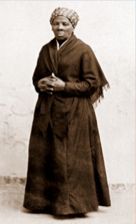 |
Harriet Tubman | Activist |
| Tubman developed a seizure disorder through sustaining a head injury early in life. It has also been reported that she suffered from narcolepsy and headaches. Nevertheless, Tubman led hundreds of fellow slaves from the American South to freedom in the North and Canada via the Underground Railroad. She became the first woman to lead an armed assault during the Civil War. Later in life, she was active in the women’s suffrage movement. Tubman inspired generations of Americans who fought for civil rights. She was buried with military honors.
"Every great dream begins with a dreamer. Always remember, you have within you the strength, the patience, and the passion to reach for the stars to change the world." |
|
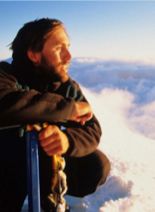 |
Erik Weihenmayer | Athlete |
| Despite losing his vision at the age of 13, Erik Weihenmayer has become one of the most celebrated and accomplished athletes in the world. He was first introduced to rock climbing at a camp for blind teenagers and began climbing more difficult mountains. Weihenmayer climbed the tallest mountains in South America and Africa and then set his sights on Mount Everest. On May 25, 2001, he reached the top of Everest and stood at 29,035 feet. He is the first blind person to summit Everest."People have the inner resources to become anything they want to be. Challenge just becomes the vehicle for tapping into those inner resources." |
|
